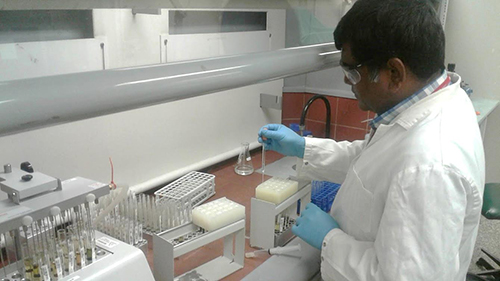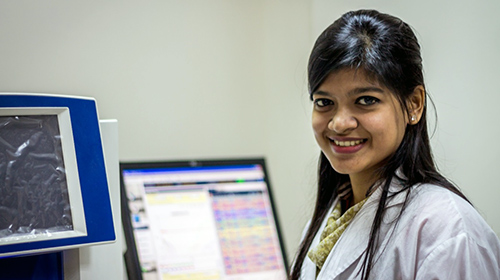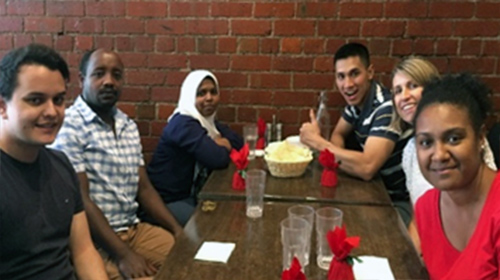Spotlight on Australia FIT/IP Beneficiaries
August 16, 2018
Australia FIT/IP works through WIPO projects and programs, as well as through institutions at the national level to support placements of scientists, such as the fellows featured below, from least-developed and developing countries with leading medical research institutions. The aim is to aid knowledge transfer and the use of intellectual property (IP) for knowledge development.
Dr. Mohammad Shafiul Alam from the International Centre for Diarrhoeal Disease Research in Bangladesh (ICDDR,B) spent six months with Dr. Katherine Andrews and Vicky Avery at the Griffith Institute for Drug Discovery, learning new ways to discover and develop anti-plasmodial compounds from natural products.

The FIT2 fellowship provided an excellent opportunity to learn new skills and gain the technical expertise needed to continue research on anti-malarial development from natural products in an area where it’s needed most
Dr. Mohammad Shafiul Alam
Ms. Tahmina Ahmed from the International Center for Diarrheal Disease Research, Bangladesh (ICDDR, B) was supported by an Australia FIT/IP fellowship to work at the University of Melbourne. Hosted by Drs. Leann Tilley and Natalie Jane Spillman, Ms. Ahmed investigated the behaviors of two novel antimalarial compound inhibitors .

The Australia FIT/IP fellowship has given me an international platform, where I had the opportunity to meet others and to create new collaborations. I am hopeful to have my own research team at ICDDR,B to work on drug resistance mechanisms.
Ms. Tahmina Ahmed
Ms. Dulcie Lautu of the Papua New Guinea Institute of Medical Research (PNGIMR) worked for five months with host Dr. Alyssa Barry and team at the Walter & Eliza Hall Institute of Medical Research. During her fellowship Ms. Lautu conducted research to improve molecular surveillance and develop genomic tools that can be used in malaria control and elimination strategies in Papua New Guinea.

The sabbatical was a learning curve for me and as an upcoming scientist from a developing country, it was a good platform for exposure to advanced technology for research.
Ms. Dulcie Lautu